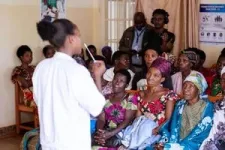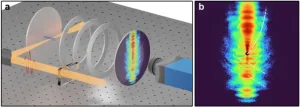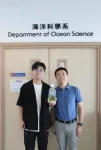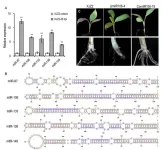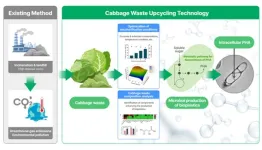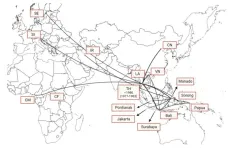On April 30, BGI Genomics and the Rwanda Biomedical Centre (RBC) launched a cervical cancer screening program in Ngoma District, Eastern Province, Rwanda. This program will provide 20,000 Human papillomavirus (HPV) DNA tests for local women, aiming to enhance cervical cancer screening and prevention efforts and improve local precision medical testing capabilities.
The launching event was attended by Wang Xuekun, Chinese Ambassador to Rwanda; Mr. Pudence Rubingisa, Governor of Eastern Province; Nathalie Niyonagira, the Mayor of Ngoma District, Rwanda; Dr. Albert Tuyishime, Head of Department, (HDPC) HIV/AIDS Diseases Prevention and Control, RBC; Dr. Theoneste Maniragaba, Director of the Cancer Diseases Unit at the RBC; Du Yutao, Chief Operating Officer of BGI Genomics; and Gao Zhiqiang, Commercial Counsellor of the Chinese Embassy in Rwanda, among others.
Wang Xuekun, Chinese Ambassador to Rwanda, stated: "BGI Genomics is a leading enterprise in the genomic industry, both in China and globally. The company has significantly contributed to promoting the friendship between China and Rwanda and advancing Rwanda's medical and health industry."
Mr. Pudence Rubingisa, Governor of Eastern Province, commented, "We deeply appreciate our collaboration with BGI Genomics and other partners. As we initiate this project, we are dedicated to leveraging all available resources, including our local health workers and agencies, to facilitate effective screening, awareness, and educational efforts. This initiative is pivotal for enhancing the well-being of our community."
Dr. Albert Tuyishime, Head of the HIV/AIDS Disease Prevention and Control Department at RBC, remarked, "Cervical cancer is a major global challenge, particularly in developing countries with limited treatment options. Rwanda aims to lead the way in achieving the global cervical cancer elimination goals. We value our collaboration with BGI Genomics, which has enhanced screening services in the Ngoma district, and look forward to extending these services across the country."
As Rwanda's public health implementation agency, the RBC is committed to enhancing the local public health through scientific research, diagnostic services, and innovative healthcare interventions. For this initiative, BGI Genomics provides a comprehensive solution comprising laboratory equipment and technology transfer, while all project samples and testing data are handled by Rwanda's personnel and stored locally under local laws and regulations. The company will also assist in further upgrading the local closed-loop management system from cervical cancer screening to positive intervention, significantly enhancing Rwanda's healthcare infrastructure. The Chinese medical team assisting Rwanda provides support for the implementation of the cervical cancer screening project, and the team's leader Zhang Heping also attended the launching ceremony.
Cervical cancer ranks as the second most prevalent cancer among women in Rwanda. According to data from the Rwanda Health Management Information System (HMIS), only 24% of eligible women in Rwanda have undergone cervical cancer screening in the past five years.
According to the WHO guideline for screening and treatment of cervical pre-cancer lesions for cervical cancer prevention, HPV DNA testing, with an accuracy rate of up to 95%, are the first-choice screening method for cervical cancer screening. A self-sampling model is recommended, whereby women collect their test samples, followed by centralized testing.
"In China, HPV DNA testing technology has been applied in many large-scale public health service programs and achieved remarkable results. We hope that cervical cancer screening can leverage BGI Genomics technology and self-sampling model in countries worldwide and help accelerate the goal of eliminating cervical cancer worldwide," said Dr. Du Yutao, Chief Operating Officer of BGI Genomics.
BGI Genomics self-developed HPV DNA testing products are suitable for large-scale population screening and precise HPV genotyping. A single test can screen for the 14 high-risk HPV types highly correlated with the occurrence of cervical cancer as per WHO guidelines and is validated by large-scale clinical data to be suitable for self-sampling.
A self-sampling model requires only a few medical staff to facilitate the rapid collection of many samples, which significantly enhances accessibility and effectively enables screening to cover areas with limited medical resources. Notably, this approach offers considerable advantages in remote regions of developing countries where cold chain logistics are inadequate, as it minimizes the necessity for advanced transportation and storage infrastructure. The ease of use, convenience, and privacy will further enhance screening coverage.
In the future, BGI Genomics plans to deliver advanced genetic testing technologies for reproductive health, tumor screening, and the prevention and control of infectious diseases in Rwanda. This will promote the overall capacity and efficacy of precision medicine and help upgrade the local medical and healthcare systems.
About BGI Genomics and SENTIS HPV Tests
BGI Genomics, headquartered in Shenzhen, China, is the world's leading integrated solutions provider of precision medicine. In July 2017, as a subsidiary of BGI Group, BGI Genomics (300676.SZ) was officially listed on the Shenzhen Stock Exchange.
The CE-certified SENTIS™ HPV test combines self-sampling technology and genotyping assay to detect 14 most important, "high-risk" types of HPV, including HPV -16, 18, 31, 33, 35, 39, 45, 51, 52, 56, 58, 59, 66, 68 and 2 "low-risk" types of the virus, HPV -6, 11.
About BGI Genomics:
BGI Genomics, headquartered in Shenzhen, China, is the world's leading integrated solutions provider of precision medicine. Our services cover more than 100 countries and regions, involving more than 2,300 medical institutions. In July 2017, as a subsidiary of BGI Group, BGI Genomics (300676.SZ) was officially listed on the Shenzhen Stock Exchange.
END

